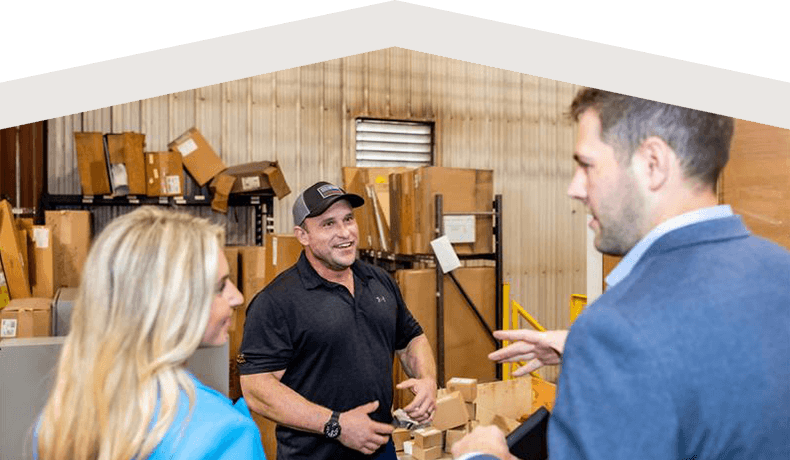BLOG POST
Freight Carrier Liability

Reading Time: 3 minutes
Liability versus insurance. In the shipping world, it's a big matchup. It's also an area of major confusion for many small and mid-sized businesses. Unfortunately, if your business ships often enough, damage will occur at some point. And when that happens, not knowing the basic differences between the two can be extremely costly and time-consuming. We want to make sure you know as much about carrier liability and freight insurance as possible.
Read on for some FAQs to help you understand exactly what carrier liability is and is not, and what you can do to ensure that your shipments - and your business' bottom line - are protected.
What is carrier liability?
As mentioned, this one of the most commonly misunderstood topics in shipping. Many shippers assume that their shipments are automatically insured through the carrier's limits of liability. They're not. Carrier liability limits represent the maximum amount of liability that a freight carrier will accept for any given commodity if it can be demonstrated that they are responsible for its loss or damage.
Are there limitations on liability?
A key thing to note is that a liability limit isn't guaranteed coverage of your shipment in the event of damage or loss. Related to that, it's also not a guarantee that the carrier will pay any certain amount on a claim. Each carrier has its own specific liability limits that they will cover, but one thing that all liability limits have in common is that they are easily surpassed by common shipping damages or losses.
These lost, damaged, or destroyed freight shipments can have an outsized impact on your company's profitability. For example, if you have a shipment that is worth $1,000 with a 4 percent profit margin, your company has to make an additional $25,000 ($25,000 x 0.04) in revenue that year to make up a $1,000 loss on that shipment.
How does the bill of lading (BOL) factor into liability?
The BOL is key to helping carriers determine their liability, if any, during shipping issues. For example, if the shipper can use the notations on the BOL to demonstrate that their goods were undamaged when the carrier received them, but were then lost or damaged prior to delivery, they have a much stronger claim. It's very important that both parties notate the BOL in a clear and concise way to avoid disputes in the case of loss or damage.
Is liability the same thing as insurance?
A freight carrier's limits of liability are not insurance. If your shipments are high in value, perishable, time-sensitive, or consist of items such as heavy machinery or used goods, we strongly recommend that you insure them.
Here are a few of the benefits you'll receive by purchasing insurance:
- Full value repayment. As you now know, liability for loss or damage has limits, regardless of the actual value of the shipment. But with shipment insurance, your freight shipments are fully protected if anything happens.
- Flexible coverage. Not only are you covered with shipment insurance, but that coverage applies to any freight carrier partner you choose through Worldwide Express - including multiple modes of transport.
- Disaster protection. Under carrier liability, weather- and disaster-related loss or damage is typically exempt from reimbursement. While insurance won't cover service guarantee failures, it will still cover the cost of the goods.
- A faster claims process. Carrier limits of liability offers no official deadline for settling claims. Some claims can take months before anything is resolved. With shipment insurance, claims are submitted directly to the insurer and typically processed within a few weeks.
Since carrier limits vary from carrier to carrier and are generally insufficient to cover losses, the expertise of a third-party logistics provider like Worldwide Express is crucial when it comes to insuring your valuable shipments. Insurance is a cost-effective way to make sure that your freight shipments are protected in a way that far exceeds your carrier's liability limits.
Think you're now a pro on the topic of liability versus insurance?
Test your newfound knowledge (and maybe learn even more!) by taking our online quiz. After that, if you still have questions or need assistance with arranging insurance for your next shipment, contact your Worldwide Express shipping expert!


